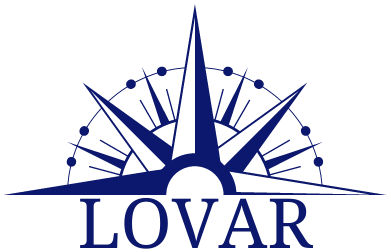In aerospace, artificial intelligence (AI) is a transformative force, streamlining manufacturing, enhancing safety protocols, and revolutionizing air travel. Inspired by successful applications in various industries, such as banking, retail and healthcare, AI’s computational capabilities promise efficient inspections and innovative approaches to aviation. As the aviation sector embraces AI’s potential, leaders must strategically explore and leverage its benefits for efficiency, safety, and fuel conservation. This article delves into the impact of AI and automation on aerospace processes, highlighting real-world examples of how these technologies are contributing to efficiency and quality in production lines and beyond.
The benefits of implementing AI in the aerospace industry
The Aerospace sector, from manufacturing to training and customer experience, demands precision, speed, and unwavering quality, a perfect fit for the capabilities of AI and automation. The deployment of AI algorithms and robotic systems is revolutionizing traditional manufacturing approaches, offering a host of benefits:
1. Precision engineering and quality assurance
AI-powered systems excel in analyzing vast datasets and identifying patterns, enabling unparalleled precision in manufacturing processes. For example, in the production of intricate aerospace components, AI algorithms can optimize parameters for CNC machining to achieve micron-level accuracy. This precision not only enhances the quality of the manufactured parts but also reduces waste, contributing to more sustainable manufacturing practices.
2. Predictive maintenance
AI is a game-changer in predictive maintenance, an essential aspect of aerospace manufacturing. By analyzing real-time data from sensors embedded in machinery, AI algorithms can predict when equipment is likely to fail and schedule maintenance proactively. This not only minimizes downtime but also ensures that the manufacturing process operates at peak efficiency, improving overall productivity.
3. Streamlined supply chain management
The aerospace industry relies on complex supply chains, with numerous components sourced from various suppliers. AI-driven analytics optimize supply chain management by forecasting demand, identifying potential bottlenecks, and suggesting alternatives in case of disruptions. This ensures a smooth flow of materials and minimizes the risk of production delays.
4. Fuel efficiency
One of the most significant advantages of AI in aerospace is its contribution to better fuel efficiency. AI algorithms optimize flight routes, taking into account real-time weather conditions, air traffic, and aircraft performance data. This results in more fuel-efficient trajectories, minimizing fuel consumption and reducing carbon emissions. Additionally, AI-driven maintenance schedules ensure that aircraft operate at peak efficiency, further contributing to sustainable and environmentally conscious aviation practices.
5. Immersive training
The integration of AI in the aerospace industry brings a paradigm shift to training processes. AI-powered simulations and virtual reality technologies offer immersive, dynamic training environments for pilots, engineers, and ground staff. These simulations replicate real-world scenarios, providing hands-on experience in a risk-free setting. This not only accelerates the learning curve but also ensures that aviation professionals are equipped with the skills needed to navigate complex situations confidently.
6. Improved customer experience
AI enhances the entire spectrum of the passenger experience, from booking a ticket to disembarking. Chatbots powered by AI streamline customer interactions, providing real-time assistance for booking, inquiries, and even during the flight. Personalized recommendations, predictive analysis for flight delays, and AI-driven customer service contribute to a seamless and satisfying journey. By understanding passenger preferences and behavior, AI elevates customer service standards, fostering loyalty and positive brand perception.
Real-world examples of AI integration in aerospace companies
In the ever-evolving landscape of aerospace, industry leaders are leveraging the power of artificial intelligence (AI) to revolutionize operations. Boeing stands at the forefront of AI adoption by employing machine-learning algorithms for advanced data analysis. These algorithms are meticulously trained to discern intricate patterns in vast datasets, enabling Boeing to make recommendations within minutes.
With a commitment to delivering superior solutions and gaining a tactical advantage, Lockheed Martin is actively developing AI technologies. This initiative focuses on infusing speed and agility into their fleet operations. By harnessing AI, Lockheed Martin aims to enhance the responsiveness and capabilities of their aerospace systems, ensuring a technological edge in defense and aerospace applications.
Airbus has embarked on a comprehensive journey integrating AI into various facets of their operations. From knowledge extraction to computer vision, anomaly detection, conversational assistance, decision-making processes, and even autonomous flight, Airbus demonstrates a holistic approach to AI utilization.
This broad spectrum of applications showcases how AI is becoming an integral part of Airbus’s strategy, fostering innovation and efficiency across their diverse aerospace portfolio. As we navigate this transformative era, it’s evident that the benefits of AI extend far beyond streamlined production lines. Precision engineering, predictive maintenance, optimized supply chain management, and enhanced fuel efficiency are not just industry buzzwords but tangible outcomes shaping the future of aerospace.

